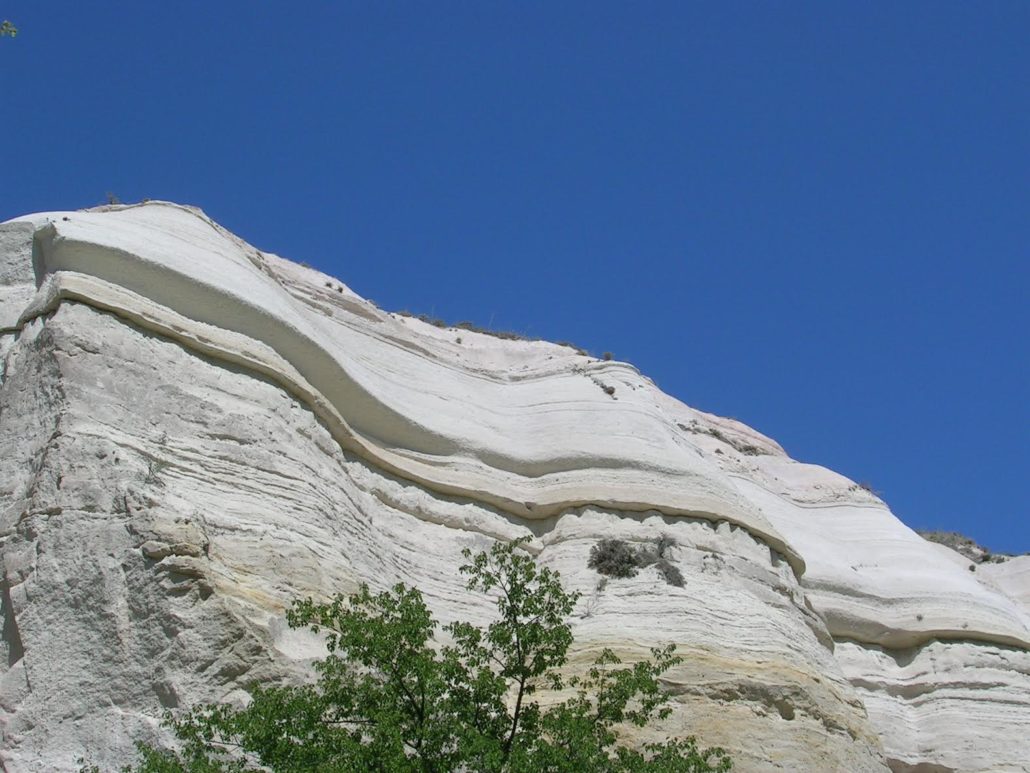
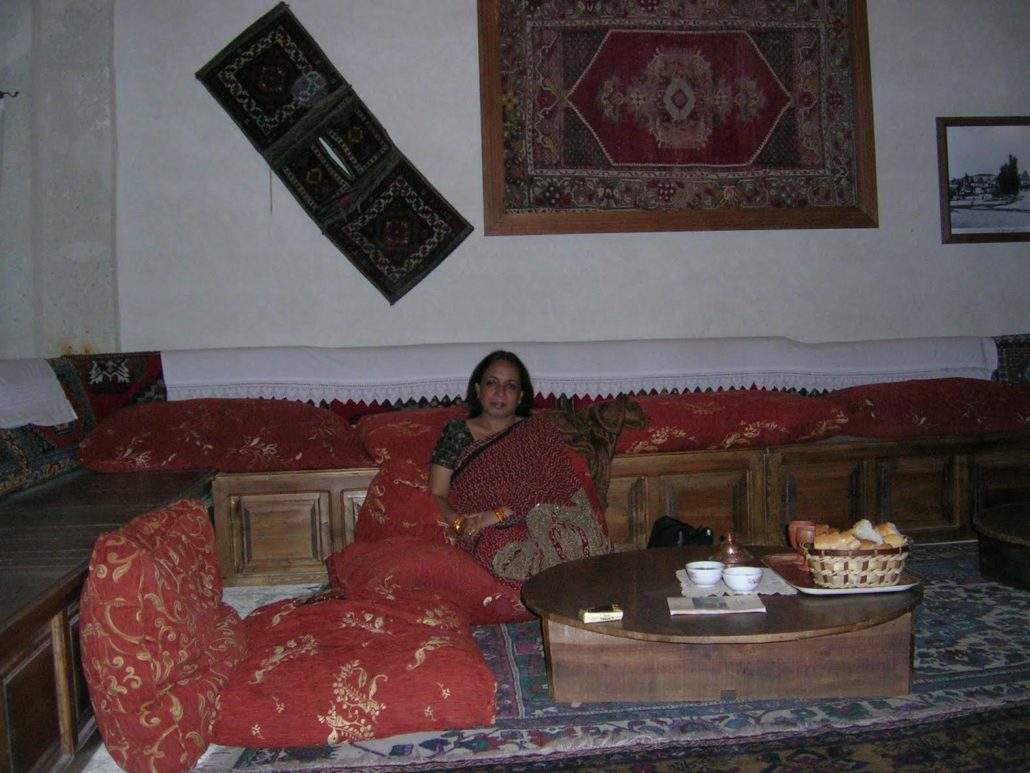
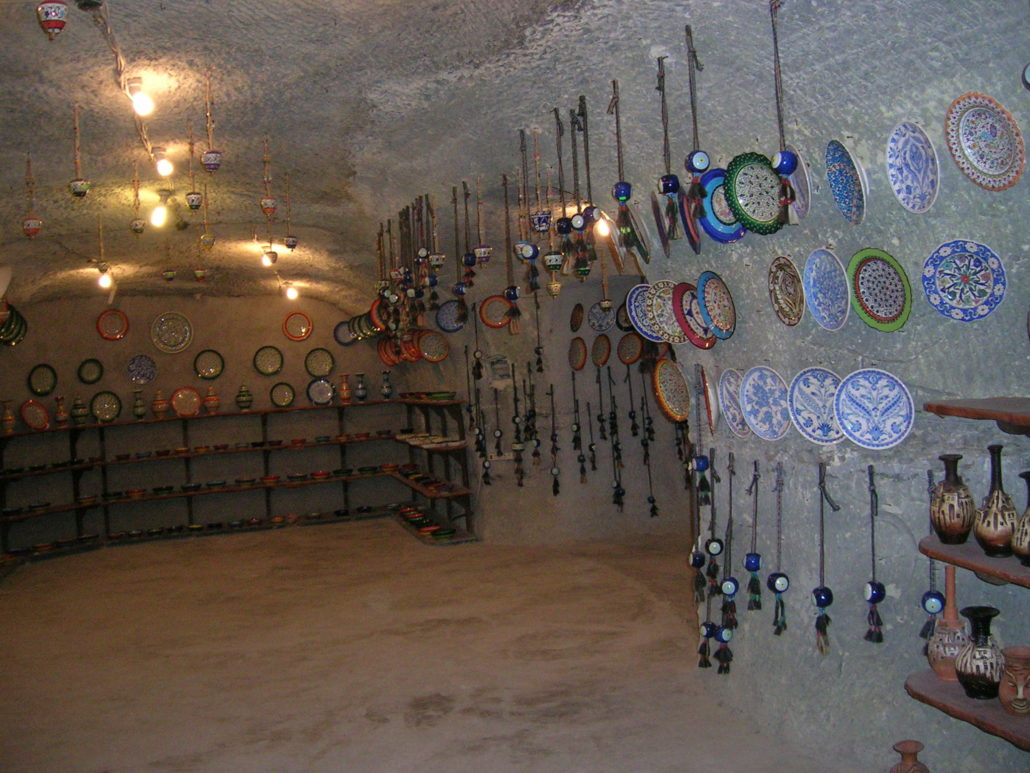
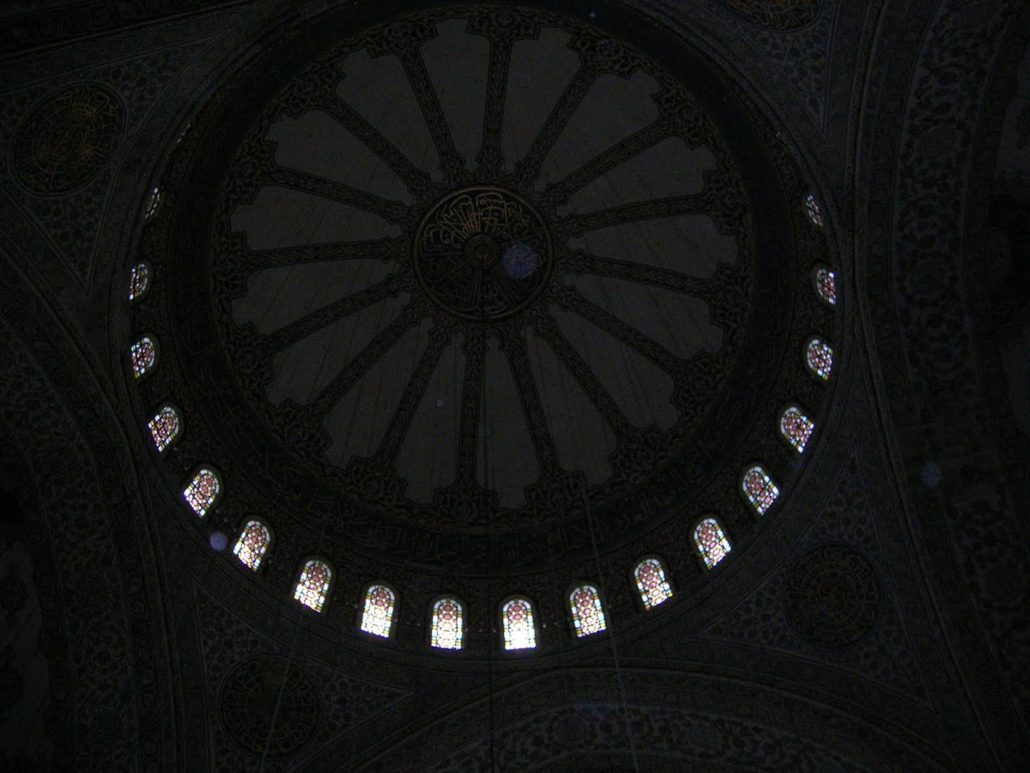
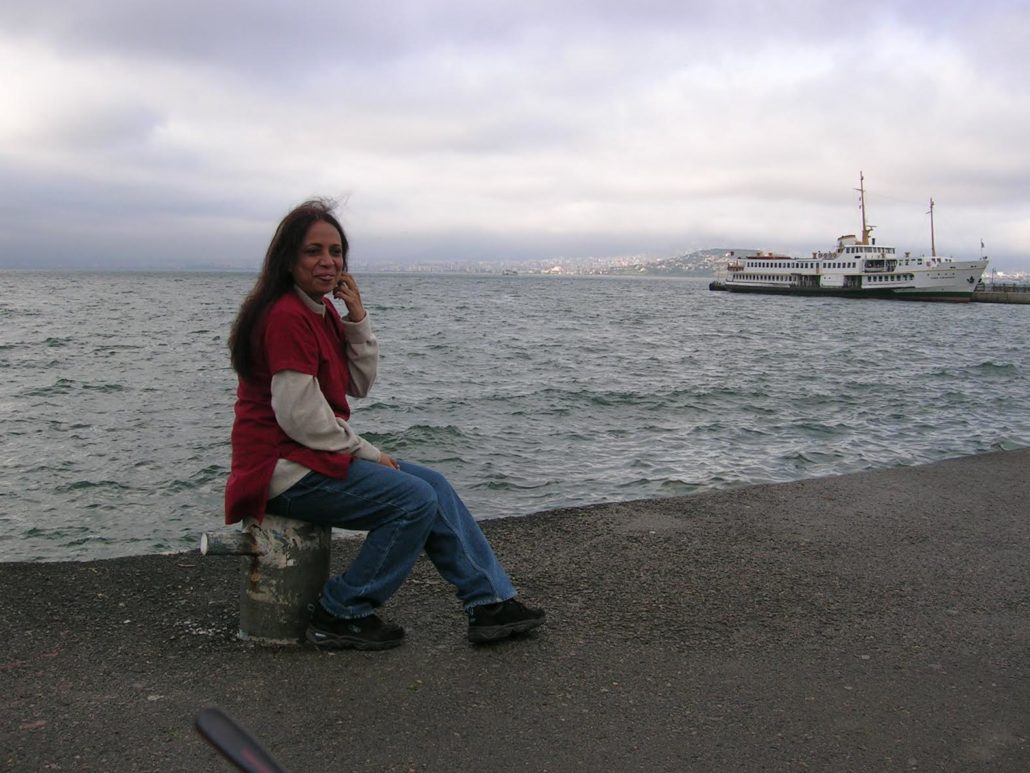
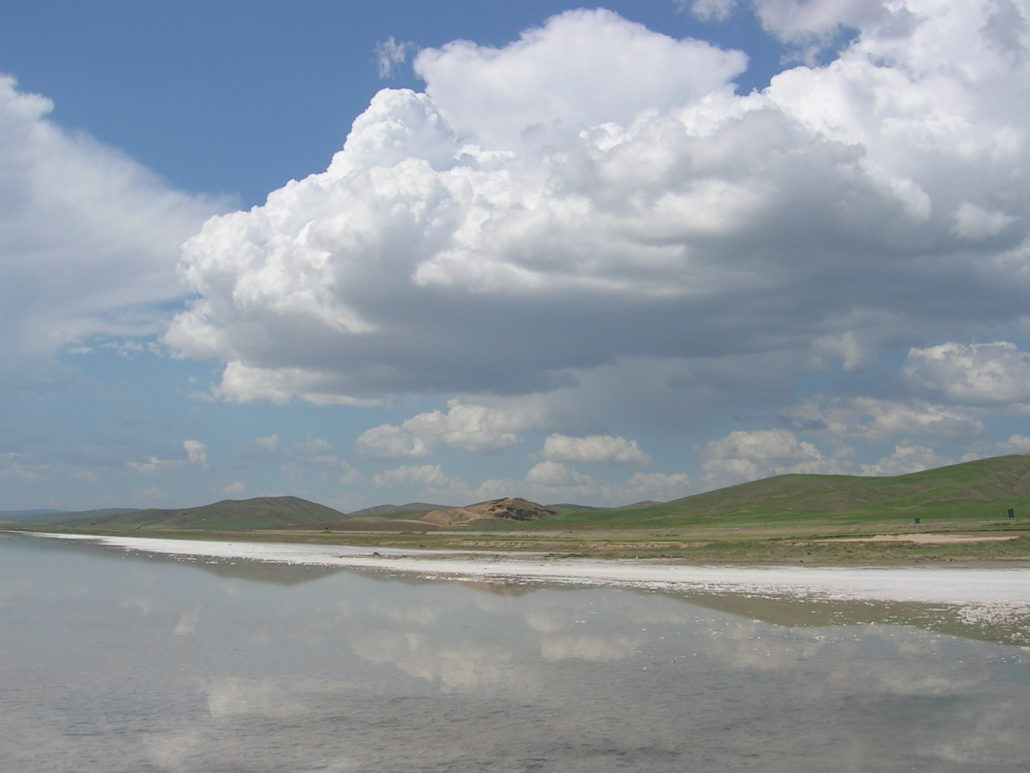
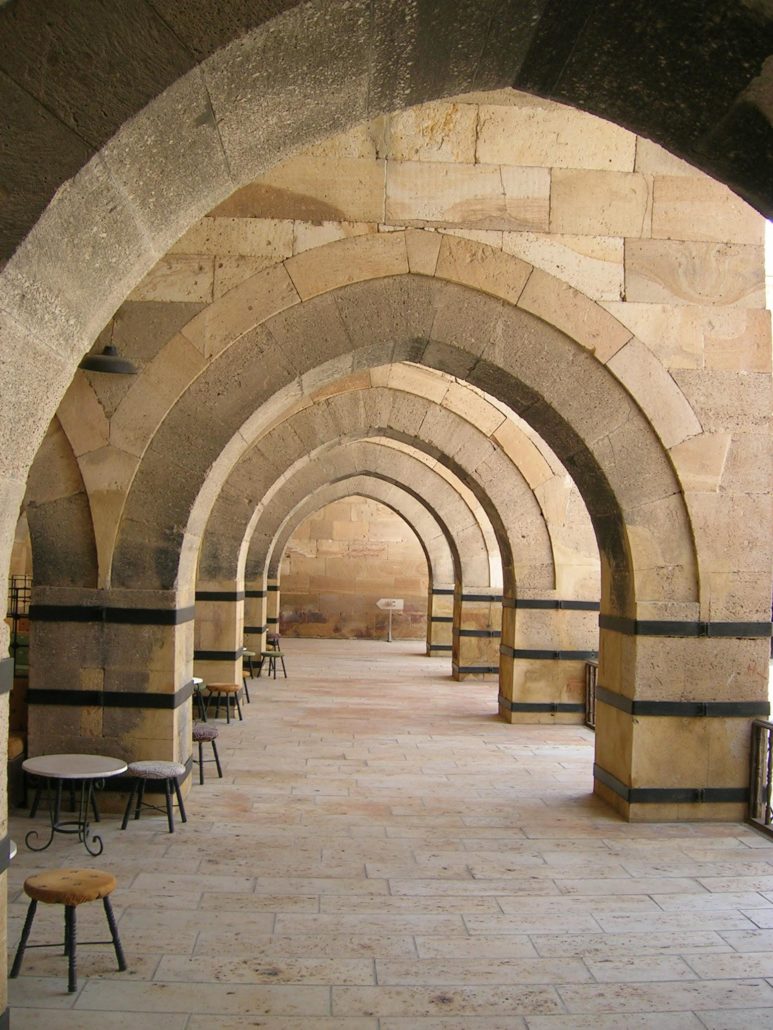
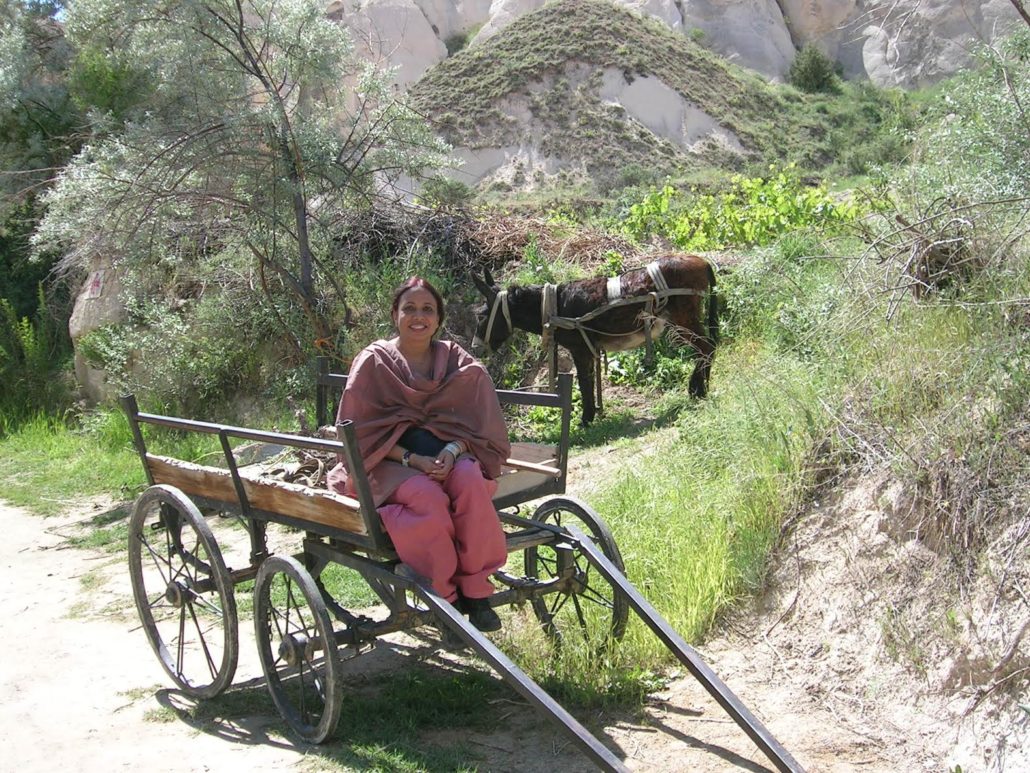
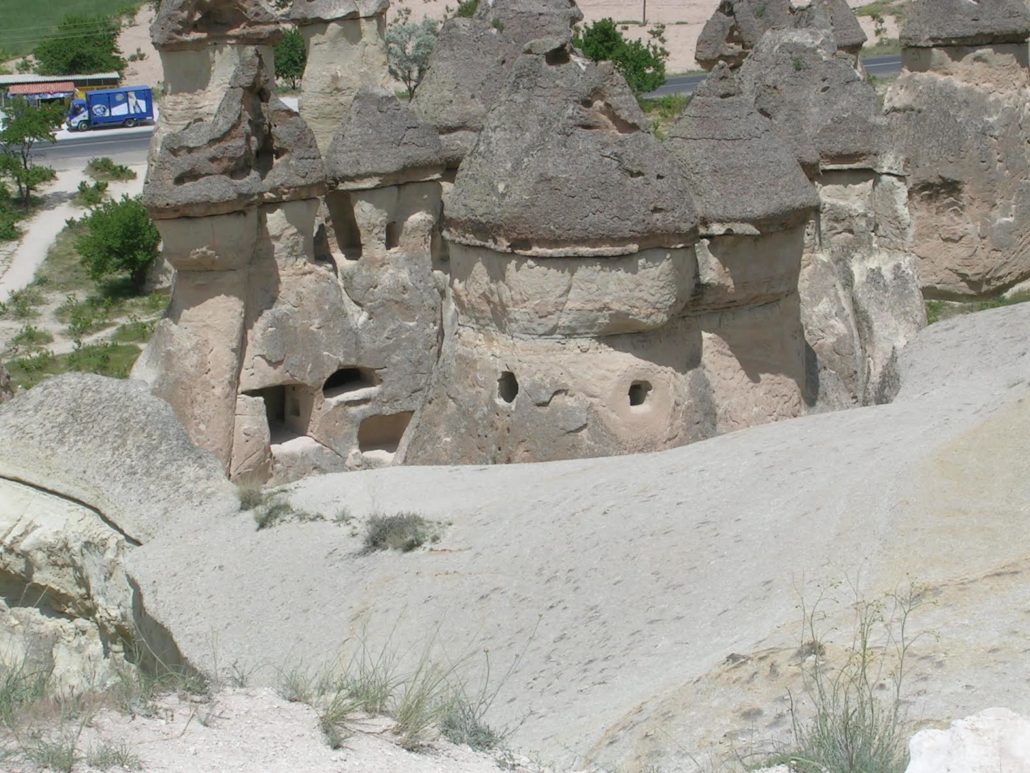
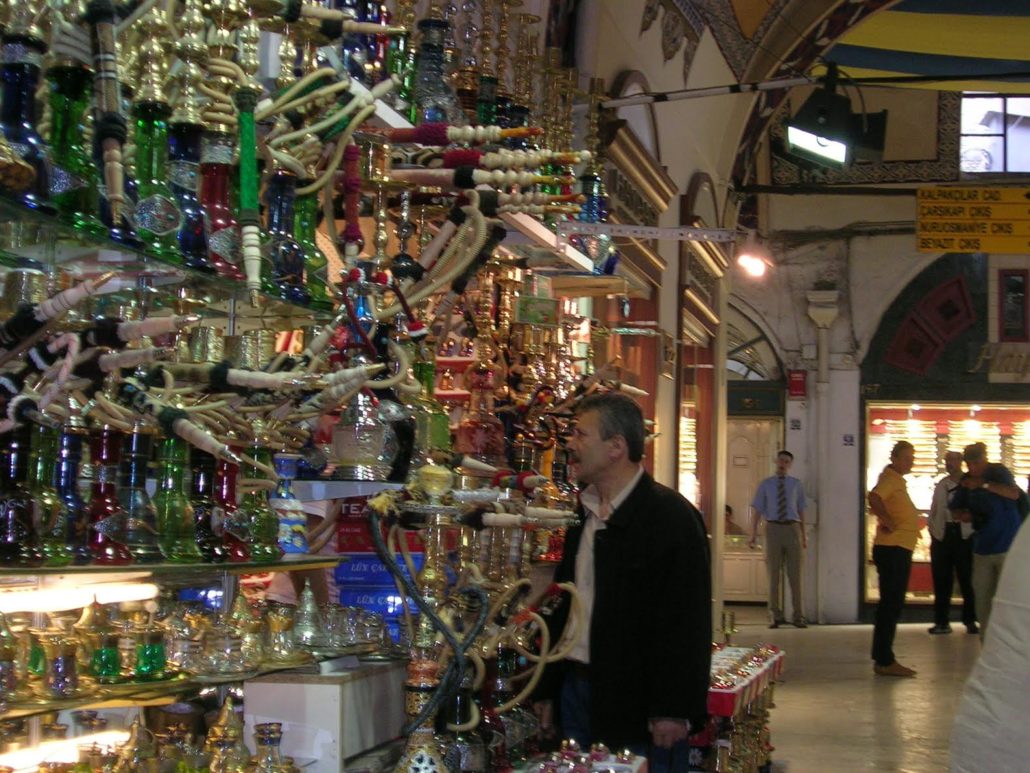
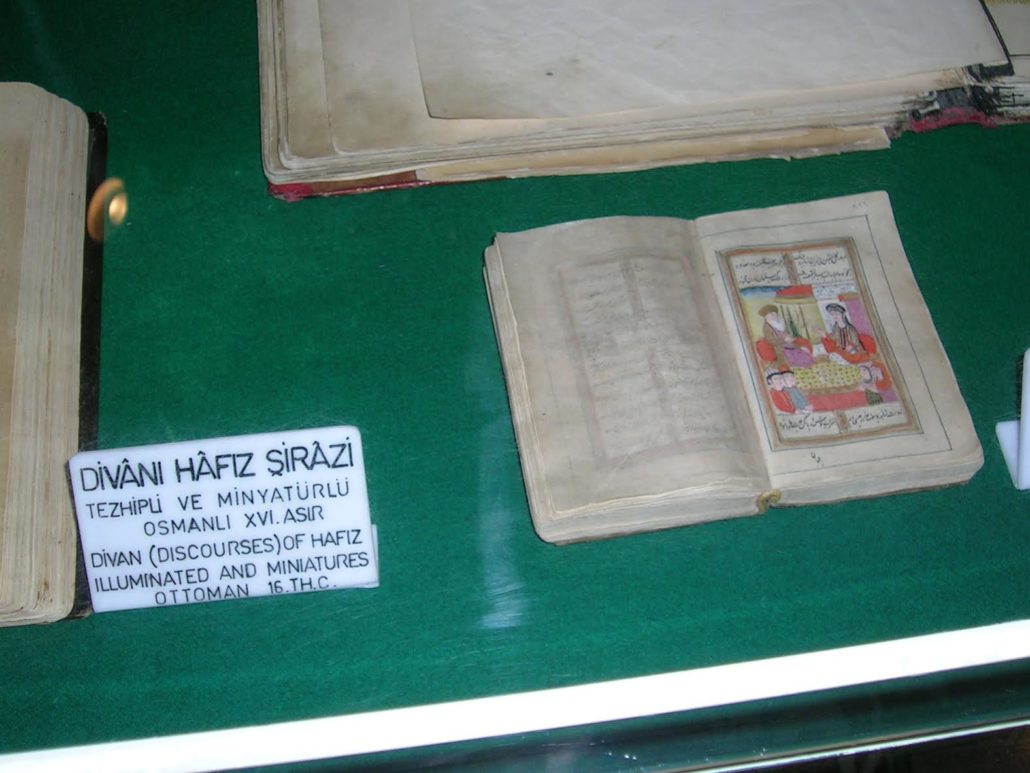
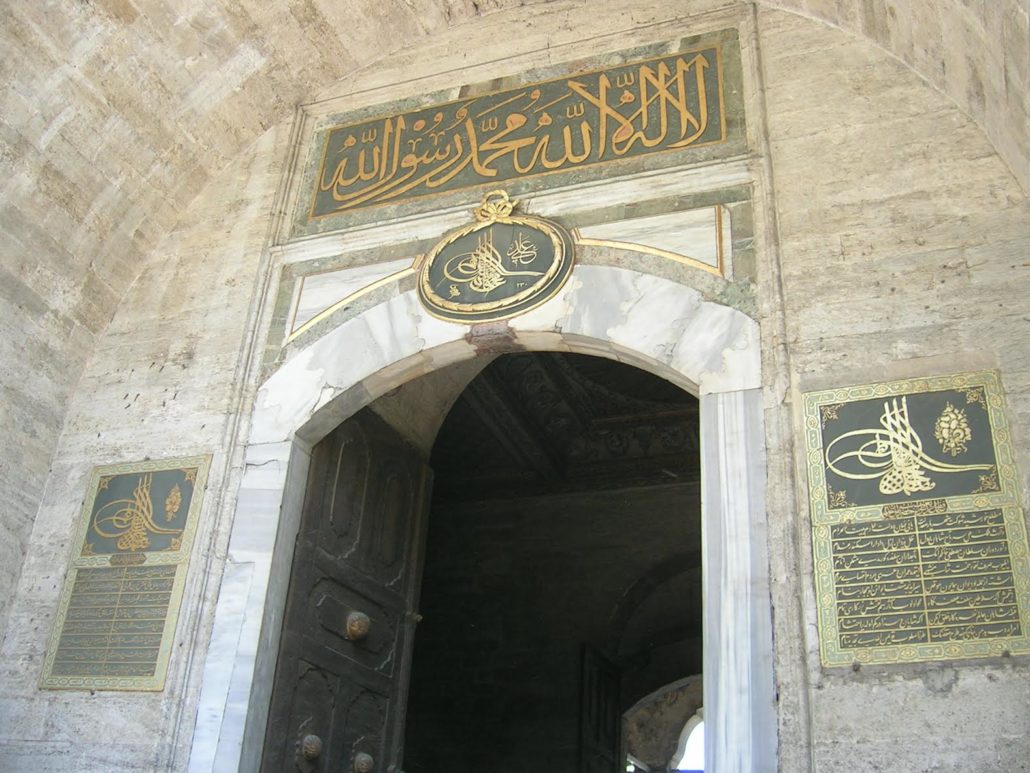
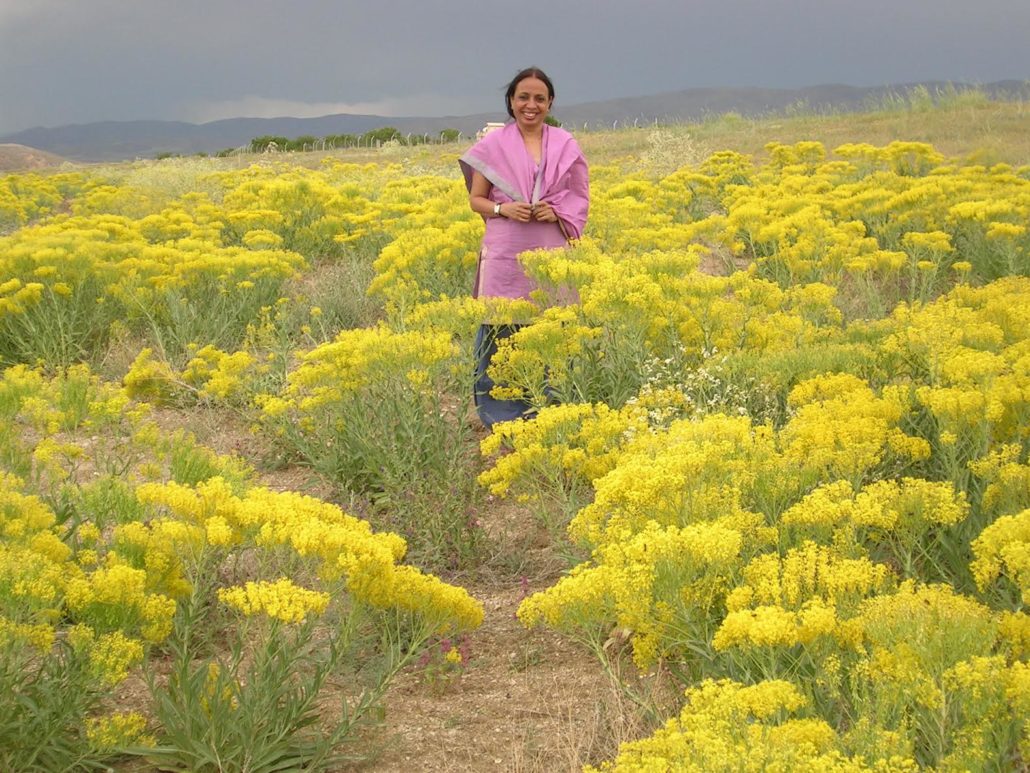
Travelling to Turkey was a long cherished dream of mine. In fact, almost every Kidwai wanted to see Konya with his own eyes, from where Qazi Qudwa, their first ancestor had travelled to India in the late twelfth century. The members of the Kidwai/Qidwai clan were well aware of their social and intellectual capital in North India. The others only knew them to be kin of their freedom fighter brother Rafi Ahmed Kidwai, who served two terms in Nehru’s first and second cabinet. From Lucknow to Ayodhya, the region covering 52 tahsils were called Kidwara (the land of the Kidwais). Qazi Qudwa’s tomb was in Ayodhya and it was almost a pilgrimage for the Kidwai’s to visit the eight hundred year old tomb – an amazing sense of belonging to Ayodhya as the place of origin of the clan in India. On 6th December 1992, along with the Babri Masjid, this symbol belonging of a Muslim clan, was demolished and the land levelled – it fell within the 64 acres of the ‘disputed land’ around Babri Masjid.
In late 2004, after a vist to Lucknow to connect up my father’s long lost family, I decided to go to Turkey, to seek my own historical and geographical origin. It was only now that Turkey was opening up for Indians. I booked my return ticket to Istanbul on Turkish Airlines that operated only from and to Delhi. Everyone laughed. ‘Why Turkey of all places?!’ was the refrain. “If you wanted anything on the flight, the airhostess will say, ‘Hey! Get it yourself!’” They ridiculed this wild adventure of mine, endlessly. Even my travel agent had booked a trip to Turkey for the first time. Armed with a 15 days visa and $ 1500 and an internet booking at an Istanbul hotel for three nights, I was ready to go. I thought that was enough. I could get a hang of the system there and arrange the rest of the tour with a ‘reliable’ tour company.
It was mid-May; a veritable furnace in India. I have a South Indian’s condescending attitude to most North Indian facilities. Delhi International airport (the new terminal was not yet ready) was like Sabzi Mandi – dirty, noisy, smelly and chaotic. There was about one seat per thousand waiting passengers. I found half of one by the luckiest of circumstances when another middle aged woman offered to share hers with me, and settled in it to wait out the hours before the counter opened. I was sleepy and tired. Boarding the flight to Istanbul like a zombie, I looked around the cabin and it was not at all bad. The overnight flight was uncomfortable as all flights are.
Early in the morning walking up and down the aisles to straighten my cramped legs, I looked through the aircraft window and saw the sunrise over the vast, barren landscape of Eastern Anatolia. The mountains had ragged lines of snow here and there, and a few water bodies. Some were snow capped. Then I saw a huge Azure blue crater-lake, absolutely circular. My first sight and photograph of the mysterious land was breathtaking!
The flight landed and I was in Istanbul!
The driver spoke English. I saw that he fidgeted with the cigarette packed and told him if he wanted to, he could smoke and that broke the ice. He took out a cigarette with alacrity and lit it, asking if I was ‘Hindistani’. Then, strangely he started to say that the people of Turkey liked ‘Hindistanis’ because they liked Mahatma Gandhi. He was a great man. He stood for non-violence. I looked at him in amazement. This experience of being reminded of Gandhi and his ideology was to repeat itself many times during my stay in Turkey – even in remote areas. Gandhi has left our minds, replaced by politics of convenience and crime. I seem to have just discovered him in the unlikeliest of places. In fact, I think in my beautiful experience of Turkey, Gandhiji had quite some role to play. Todate, it is my best travel experience, of the 40 odd countries I have had the opportunity to travel.
The flower-lined road with the Sea of Marmara on the right and the ruins of the Byzantine city wall of Constantinople on the left, made it seem like we were travelling through history and the enchantment of the newness at the same time. We drove through a gateway of stone into the quaintest cobbled streets running up and down the contours of the hill, with old magnificent buildings clustered on their edges. Oh the first sight of Sultanamet Square! The Hotel was absolutely enchanting. It had paintings of the street life and homes during the Ottoman times, on all the walls. And there were black slaves in them! Carpets covered sofas, hung on walls and lay scattered on the floor.
The room was small but clean and comfortable. And when I opened the drapes, framed in my tiny window, was the Blue Mosque – the symbol of Istanbul! I stood breathless for a moment. I quickly had a bath and went downstairs to breakfast in the L-shaped breakfast room. The spread was interesting. There were fresh orange and cherry juices, cereal, an assortment of breads, boiled eggs, cheese rolls, assorted cheeses, pickled green and black olives, lettuce, cucumber, tomatoes, fresh green peppers (that were strangely bland to our Indian palates used to as we are to hot peppers), butter, jam, tea and coffee. This breakfast is a standard fixture all over Turkey. No variation is permitted. Twelve identical breakfasts! But this was my first and I ate with relish.
It must have been 10 or 12 deg Centigrade. Cold. I put on my pullover and stepped out in the sun, walking down whichever path I felt like, feeling excited and rearing to go explore a strange land. I felt no sense of insecurity that usually assails me on my first solo walk in an unfamiliar place. I gazed with wonderment at my first sight of the Turkish roses. These flowers are incomparable. Huge and perfectly formed. Of many hues and absolutely tantalising. Nowhere else are roses like these found and in such abundance. And they come as climbers! They adorn the stone walls, the wrought iron trellises, the gates, the doorways, the street side green spaces and the hearts of the visitors.
I just strolled along cobbled streets lined with shops selling carpets, souvenirs, silverware, food (lots of them), ceramics, jewellery, tours, and the delightful sidewalk restaurants with tiny tables covered in white cloth. I loved them most. I went climbed down into the 1500 years old Yerebatan Sarnici (The Basilica Cistern). It was cold and damp and dark and an unforgettably mesmerising place. To have stood for so long under the city, intact and unscathed by the vagaries of time, to have known the Roman, the Byzantine, the Ottoman and the modern times, to hold history, as it were in its belly, must be a rare honour for any building. I climbed back up into today’s world, but who can be in Istanbul and not live at least a 500 years in the past? In fact, the then Constantinople fell to the Ottoman forces on 29th May 1453 AD – exactly 552 years back.
I finally surrendered myself to the temptation of the sidewalk restaurants. I sat at a table with a park lined with flower boxes on one side and the street on the other. The tiny restaurant in the side of the wooden building had hundreds of little laater- haandis on its walls and hanging from its ceiling. The waiter who served us, outdoor guests, had the most brilliant smile I’ve ever seen. Yes, I was happy and I choose to sit at the table of the waiter who seemed to be happy too. I looked at every other face, pleasantly surprised at all those wonderful experiences right on the first day of the trip. We seemed to say to each other, “Isn’t this absolutely wonderful? Is this a dream?”
I had a platter of all the dishes in the restaurant in very tiny quantities [this was a brilliant idea. Another tourist, a European woman at the next table, suggested I order it], a basket of bread [which was on the house as is the case generally in Turkey], and a casserole of baked vegetables. This dish was delectable. The waiter was cheerful and attentive, the food was delicious, the people who walked by on the street smiled at us, the sun was warm, the ambience was fairy tale like. This first lunch in Istanbul bordered on the divine. I shall remember it vividly all my life, for can there be such a perfect date with my dreams again?
I returned tired but happy to the hotel, around half past three in the afternoon. I had a hot bath, changed into my night dress and just fell in bed and promptly fell asleep. Life was suddenly, exquisitely, beautiful!
I woke up in the hazy dawn and relished the delicious high of being on an adventure for a time until the Azan from the Blue Mosque made me listen silently to its melodious flow. The voice of the muezzin was very nice. I got up to look at mosque in the pre-dawn redness of the sky, with the dark waters behind and the white seagulls careening in the sky above. The world was waking up.
As I usually do, I went in for my bath at dawn. I kept the water hot enough to send steam up from my body. It woke up my senses. From now on the routine fell into a charming pattern. The mornings were cold, the sun would just be rising, the seagulls would be meowing, the body relaxed from rest and mind alive with a thousand impressions of the strange land.
I fell in love with Turkey the very first day and then, every time I walked out, every day, all over again!
I would usually walk along the cobbled streets of Istanbul and see the monuments, buy books, sit at sidewalk restaurants, come back late afternoon, to rest when I felt tired. And I talked with and listened to many Turkish men or women; the shopkeepers, restauranteurs, elderly taxi drivers, anyone who could share her story with me. I found a great deal of laughter and simple joy of life. People looked at me and smiled. In fact, on my last day in Turkey, while I walked back after seeing the Grand Bazaar, one street vendor said,
“You look happy. You are very lucky.”
Yes! I was lucky – far beyond what anyone could see.
I had been asked to check out as hotel could not renew my reservation. There were football league matches in Istanbul for the next one week and about sixty thousand people would descend on the city starting tonight. Football is religion, faith, love and high, all put together in Turkey – Europe for that matter. Football is to Turkey what cricket is to South Asia. Period. I was suddenly nervous because I was not getting any place to stay tonight and later.
The three days that I had walked in the European part of Istanbul, I had seen a small glass-fronted tour operator’s office, where a middle-aged lady sat at the table and always waved to me. Yesterday, I had gone in asked about seeing Turkey. She spoke no English. Most people here speak German other than their mother tongue. She gestured to me eloquently, reassured me, showed her family album, her daughter’s wedding photos and plied me with apple-tea! Ah! A more refreshing drink I did not have until then or since. It was actually green apple peel dried and crushed in place of tea leaves! When I smiled my thanks at her, she came around the table to hug me and kiss me on both cheeks. She introduced me to her business partner E. E is very handsome, with blue eyes and long lashes, a square face with a cleft chin and lot of hair. He is tall and thickset – very Mediterranean. His firm handshake immediately inspired confidence in me. He showed me his tour operator licence and spoke in fluent english.
I asked Eemeed to find a place in some suburb of Istanbul or even a village connected by local train. He finally found a place on an island. Buyukada was one of the fourteen small islands called Princes’ Islands collectively because the Ottoman Princes lived there at one time. Then they were opened to the public in late 19th century and the rich and the famous built their holiday homes there. The Jews and the Orthodox Christians were the first because they were the richest.
I did not know what to expect. I had been booked at Splendid Hotel. I planned to go in the late afternoon by ferry. I wanted to pray at the Blue Mosque this Friday. I checked out and left the baggage at Eemeed’s office and walked to 552 years old Istanbul University with the famous Bayezid mosque attached to it. The original building is only the administrative block now and the actual teaching takes place in smaller, badly planned buildings spread in the neighbourhood on one side of it, across the road. The first thing I noticed was the presence in unbelievably high numbers of troops in and around the campus. One man actually asked to see my passport! why? it was later that I read of the student unrest that was feared by the government because there was really no freedom of speech, the civilian govt could run the country only if the army permitted it and the army had taken over power several times since 1923. A legacy of Kemal Attaturk. The educational institutions had been cleansed of religious instruction. It was almost a communist kind of set up. The medium of instruction is Turkish in 90% of the universities. Hence, student exchange programmes are not viable. Any query is referred to Commission of Foreign Affairs for any communication. What does a CFA have to do with education. But that is how the government controls its most volatile constituency. This was only half democracy. I spoke through a an interpreter – an MA student from the department of English. There is a department of Urdu there! It was started with patronage from the government of Pakistan and then allowed to go to ruin because both governments lost interest. Very sad indeed. There is immense literature on the Turkish history and campaigns, on genealogies and arts and crafts and war strategies in Urdu.
I had been dying to ask a question and I did. What was the impact of converting the Turkish language alphabet from Persian script to Roman? Was it not making language, literature, history, heritage inaccessible to all the future generations? Will they not be rootless? Wrong question to ask; or rather wrong man to ask the question to. He made appropriate noises about transliterating all important documents and journals and archival material. Very unconvincing. But what else was he to say? The idea was to wipe out the past. Kemal Pasha was ashamed of it. Changing the alphabet does not make for integration with Europe. Who in Europe knew Turkish even if the alphabet was familiar. And the alphabet had been modified to read Turkish phonetically. I think it is tragic for the generations to have lost their cultural heritage by being unable to read the huge wealth of literature in Turkish, written when Turks commanded the region from Hungary to Yemen and from Morocco to South Asia. The glorious age that as is its wont, also coincided with glorious scholarship and arts. Only now, after 82 years, do the Turks show pride in their heritage. A tentative pride even then.
I returned to Sultanmet Square and I went into the mosque to pray – an atheist at prayer! I wanted the experience of being there in this famous half a century old building that had seen millions of footfalls, from emperors to the poorest, from revolutionaries to the loyalists and now the Turkic tribal men from Central Asia, come to learn religion anew after four generations of living under communism. I climbed up to the women’s section on the mezzanine floor. It was up a spiral staircase of marble. The middle part of each step had worn out into a trough from 500 years of being used by women to climb up for prayers. The Qirat by the Turkish Qari was melodious and a pleasure for the ears. I have had no such experience before. The acoustics of the place are something to die for. Perfect.
The women who came up, had shopping bags and young girls with them. They wore jeans and t-shirts or long skirts under the denim coats. They kept their shoes and bags in front of them while praying. The khutba or sermon was in Turkish so I didn’t know what was being said. I met a Pakistani woman who is a British immigrant. A Punjaban. She was very interested in India and Hyderabad. Saw Muslims from many nationalities in the courtyard. Those from Europe, CIS countries and even Chinese Muslims, all come to see the seat of the most powerful and longest ruling Muslim empire and more importantly the seat of the Caliphate for six hundred years. When I came out, I looked for E where I said I would meet him. He was not there. I searched for him all over the Sultanamet area with growing panic for more than half an hour. He thought he would stand near the door and catch me coming out. But had missed me. I found him in his office, waiting for me. We had a wonderful lunch before E took me on the ferry to Buyukada. He carried my bags and was so considerate and nice.
Buyukada
My first sight of Buyukada was of a green hill with the erstwhile Mayor’s palace dominating the smaller houses by its silver double-domes, white wooden façade and red shutters standing imposingly high and flying the red Turkish flag over the sea of Marmara. It turned out that that is where we were going to stay for the next three days! Splendid Palace was indeed splendid. Inaugurated in 1908, with guests including Edward VIII and Wallis Simpson, it was inspired by ‘Art Noveau’, yet is a harmonious blend of architecture of the East and the West. It had huge French windows opening onto the balcony facing the sea, from every room. Beautiful wooden floors, staircase, mirrored elevator, bright breakfast room laid with red and white chequered table cloths and a ballroom where Kamal Attaturk had danced after winning the 1923 war on six fronts and saving Turkey from dismemberment by the European powers and US. The inner courtyard surrounded by Seljuk styled pillars simply floored me. The heavy wooden reception counter, the gracious staff, the blooming gardens, the heart-warming comfortable rooms can charm the most belligerent spirit. It was so romantic!
My room was huge and full of light reflected from the bay through the French windows. The evening sky and the misty bay came in through the French window and I stared at the picture in rapt wonder. I stood still in a joyful trance, not believing that I was indeed in the midst of such beauty. Was it a miracle created for me alone?
All through the night, I woke up several times to look out of the window onto the flickering lights from the ships in the harbour. It was enchanting. I woke up at dawn as usual and had my bath.
I had a very light and delicious breakfast with the mandatory cherry and pineapple juice and several types of cheese. The waiter at breakfast smiled and asked me if I was ‘Hindistani’ and when I nodded, he asked if I was Muslim. I nodded again. He said he was Khurd and so was his friend beside him. He said he loved Gandhi because he was a ‘good man’ and ‘no violence’. Gandhi seems to have captured the imagination of all of Turkey and he still retained the respect he had won more than seventy years ago when he had visited Turkey. Coming out of the breakfast room, I looked around and decided to walk around the island. The cobbled streets were so tempting. I kept walking, looking around, taking in the beauty, admiring the sights and taking photographs. I felt I belonged to this paradise.
I took the road that ran around the rim of the island, at the foot of the wide hill. There are the quaintest fairy cottages, villas, mansions in wood, with masterfully carved eaves and pillars and balustrades, magnificent balconies, picture windows and polished floors. Each a piece of art, not architecture. And each set like a jewel in aesthetically laid out, meticulously maintained rose gardens. O what roses! Every conceivable colour and shade, heaps of giant roses on each bush and plant and climber; against every wall and gate and pillar, on beds of velvet green lawns! The ancient cobbled streets are filled with the colour and fragrance of roses, honeysuckle and a different kind of Torch tree, innocent of any machine, run only by horse drawn carriages.
I walked for three hours – along the sea, up the hill (where no houses are allowed to be built, so as to protect the pine forest), through the pines, pausing here and there, looking over the tree line to the azure sea sparkling in the morning sun, loving it all. It is one of my treasures now. I came upon a clearing, where under a thatched roof, stood a dozen donkeys! I wanted to ride a black donkey because we never see black donkeys in India. The donkey driver led the donkey (with me on it) for a mile and back, refusing a shorter ride when I thought I would fall off the donkey.
I continued to walk after the little interlude. At a bend in the road, I sat on a little retaining wall to rest. Two cats, one tabby and the other white with black patches, immediately came to me, fawning on me, rubbing their little bodies against my ankles, purring and in general adopting me. The tabby followed me a long way, wanting to be my companion. There is something about Turkish people (and animals in this case). They are very nice to me, talk and smile and help and in general treat me in a special way. Difficult to describe but unmistakably gracious and warm. It was afternoon and I lost my way. It was wonderful to lose the way in such beautiful surroundings. The sky turned grey and a cold breeze started to blow. It started to drizzle intermittently. I stumbled upon a small market on the sea shore. There was a restaurant and I had a late lunch. The man served the greatly refreshing apple tea when I finished eating, on the house. I walked some more after lunch after buying some strawberries and cherries and kept walking, nibbling at the fruit.
After a two hour siesta, I went down to the waterfront. It was very grey and windy and cold. It grew very dark and cold and I had to find run uphill back to the hotel. I finally reached Splendid Palace just before it started to rain heavily. The sky turned black and lightning jagged down, fluorescent and fiery. Thunder boomed across the island. I woke up in the middle of the night to the big booming thunder clap. The sky was deep pink, the sea was a roaring turbulence, the lightning plunged deep into the room through the open window, turning everything a blazing orange. I held my breath. I watched the storm for a long time, my head resting against the headboard. It was pouring in sheets. I had never known a storm on the sea coast. This was a unique experience. I felt complaisant. There was this wild storm outside, but I was warm and safe and happy. I had not dared to ask so much from God. My whole life converged to this moment of realisation that if I had such beautiful moments, my forty eight years had not been lived in vain.
The morning dawned overcast and grey and absolutely breathtaking. I lay in bed relishing the sight of the sky and sea, blending seamlessly into a grey sheet. It was very cold and drizzling. So I took a half hour phaeton ride and returned. I just loved the horses, though one tried to bite me when I reached out to pet him. It stopped raining and the sun floated out in all its brilliance for just a while. I asked if I could get something to eat and the chef said he will give me a special treat. And what a special meal it was! He laid the table on the sun-drenched deck, under the windows, above the front garden, beside the red rose climber, aflame with thousands of blossoms. He arranged a royal three course lunch, served with such deference and grace, I could be the Ottaman empress! Red wine and grilled chicken with sautéed vegetables, big flat unleavened bread and desert of fruits. The deck overlooked the sea and dined in state, looking out at the sparking waters of Marmara, the dozens of launches streaming in and out of the harbour ( bringing Sunday crowds for a ride around the island, lunch and return), and Istanbul across the gulf.
Buyukada is heaven on earth. A heaven specially created for me. Created for me to discover myself – unrestrained by any bonds. Once I leave, it may simply cease to exist. I was destined to come here – on to this island and into this lovely palace. Was this a dream? Yes it was. Only, it had come true – a dream I did not dream but which in some previous reincarnation, must have been mine.
E came with his wife and son and daughter. His wife is Uzbek – flat faced and mongoloid. A doctor by profession, but finds it hard to work in Turkey because all women with Uzbek origin are seen as prostitutes or otherwise ‘loose’. Colleagues do not treat them with any respect. After the breaking up of the Soviet Union, the economies of the underdeveloped Central Asian republics simply collapsed. The first to be affected is the most vulnerable – woman. There is a very well organised racket in trafficking of women from the newly liberated countries of USSR. The East European countries sent their women to West and Central Europe and the Central Asian women are sent to Asia. E had been a rich man in the travel business in Tashkent. He lost all his money in the revolution last year. The banks do not function there, so he had all his cash stashed at home and in office. They were looted and burnt down. No law and order prevailed. The best he could do, was to return to Turkey. He has come back to his land to make a fresh start. He is not too happy but is an enterprising man and willing to work hard. He did not really have to bring his family to see me. But like I wrote before, there is something about these people. A certain trust and a certain aura of happiness, I guess. His son is probably 8 or 9, a miniature copy of E. His daughter must be 5 and delicate. We went out to the one commercial street in Buyukada to let the children have ice-creams. It gave us an opportunity to talk of Turkey in general and get a common man’s take on issues.
I left for the Sarkeci train station in Istanbul, to take a train to Ankara, the same evening. Clean, comfortable and pleasant, the trains are a traveller’s delight with friendly people who show you the photos of their kith and kin as soon as they make friends. I reached Ankara the next morning and Cappadocia by car from there, by sun down.
Phoenix, the small six-suite hotel we stayed in, was part cave and part constructed abode. Very harmoniously furnished. O is a young, bohemian, green-eyed, English speaking, energetic guide and part owner of the place. Coming from Thrace, he has friends all over Anatolia and Thrace and in Konya, and juggles his work and pleasure so easily. Listens to music all the time and is on the internet whenever possible. He can cook and clean and drive you around and give you in depth details of monuments and history, keeping abreast of global politics as well. In his mid twenties, he is a character to write about. Always cheerful, eats next to nothing and smokes endlessly. By the time the trip ended, I had a certain maternal affection for him.
I must write about my favourite restaurant in Goreme – Dibek. Well Goreme is a one street village of cave houses and other buildings made of the same volcanic rock and it is hard to know which is which. Over the cave door, it said, ‘Yoresel Ev Yemekleri’, meaning in Turkish, ‘Traditional Home-cooked Food’. And it was!